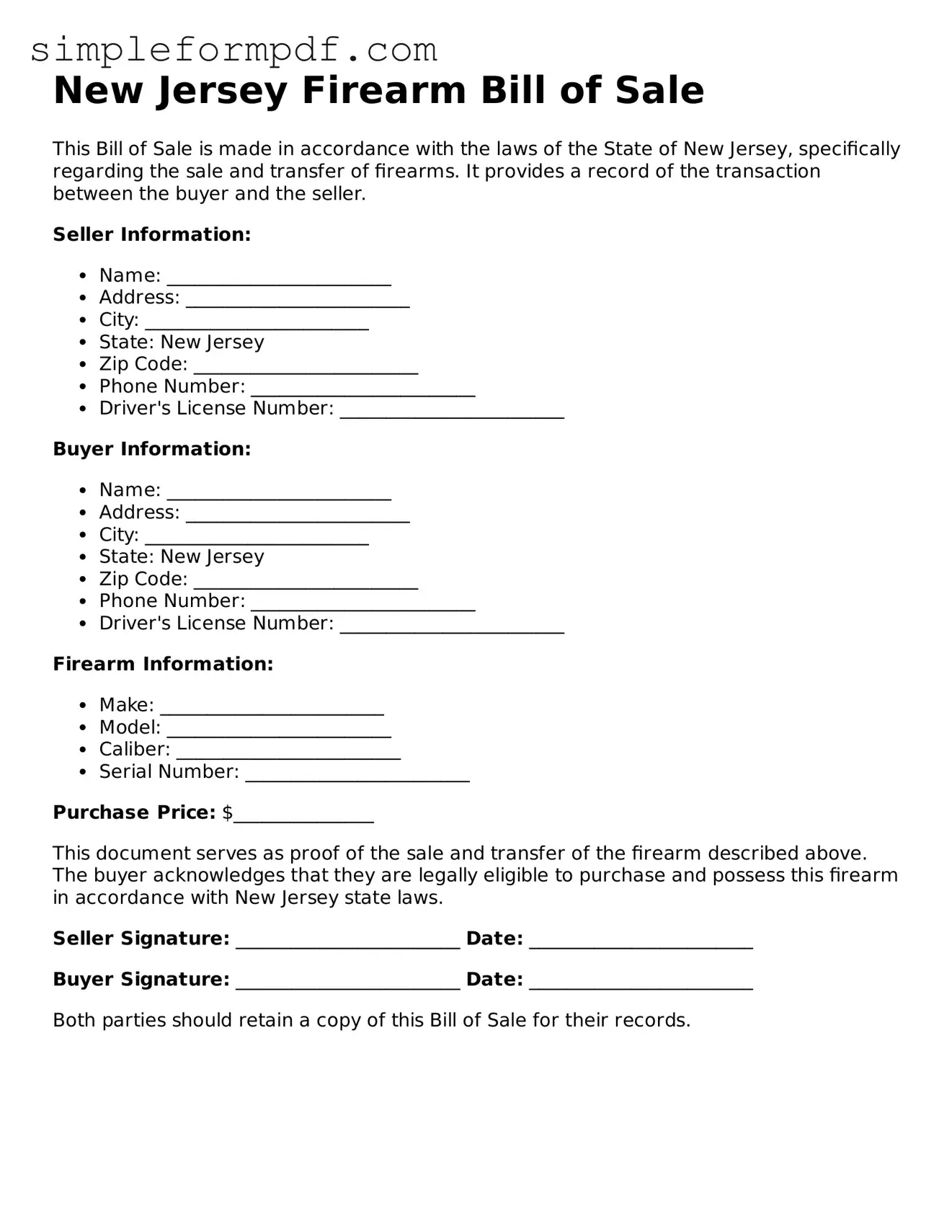Free Firearm Bill of Sale Form for the State of New Jersey
The New Jersey Firearm Bill of Sale form is a legal document that records the transfer of ownership of a firearm from one party to another. This form serves as proof of the transaction and includes essential details such as the buyer's and seller's information, firearm description, and sale date. Properly completing this form is crucial for compliance with state regulations.
To ensure a smooth transaction, consider filling out the form by clicking the button below.
Launch Editor

Free Firearm Bill of Sale Form for the State of New Jersey
Launch Editor
Need instant form completion?
Finish Firearm Bill of Sale online in just a few minutes.
Launch Editor
or
Download PDF
